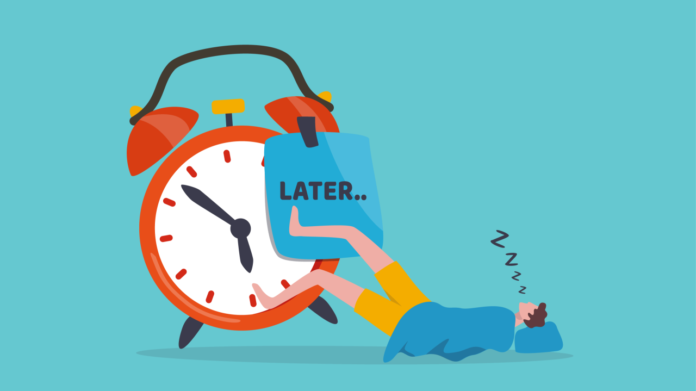The Psychology of Procrastination: Why We Delay and How to Overcome It
Procrastination is something we all struggle with at some point. Whether it’s putting off work, delaying studying, or avoiding a difficult conversation, procrastination can be frustrating and even self-destructive. But why do we procrastinate, and more importantly, how can we stop?
In this blog, we’ll explore the psychology behind procrastination and provide practical strategies to overcome it.
1. Why Do We Procrastinate?
At its core, procrastination is not just about laziness or poor time management. It’s a psychological battle between our present and future selves.
🔹 Instant Gratification vs. Long-Term Goals – Our brains are wired to seek pleasure and avoid discomfort. Tasks that seem difficult or boring trigger avoidance, leading us to opt for more enjoyable activities (like scrolling social media).
🔹 Fear of Failure – Sometimes, we delay tasks because we’re afraid of failing. The fear of not meeting expectations makes us postpone starting altogether.
🔹 Perfectionism – Perfectionists often procrastinate because they want everything to be flawless. They fear that their work won’t be “good enough,” so they delay beginning it.
🔹 Lack of Motivation – If a task doesn’t feel important or urgent, we tend to delay it. This is common with long-term goals, such as exercising or learning a new skill.
🔹 Overwhelm – When a task feels too big or complex, we don’t know where to start, leading to inaction.
2. The Science Behind Procrastination
Neuroscientists have found that procrastination is linked to the brain’s limbic system (which controls emotions) and the prefrontal cortex (which manages planning and decision-making).
When faced with a task we don’t like, our limbic system triggers avoidance, while the prefrontal cortex struggles to override it. This results in choosing short-term pleasure (watching Netflix) over long-term benefits (finishing a report).
Interestingly, procrastination also causes stress. When we avoid tasks, we experience temporary relief, but as deadlines loom, anxiety kicks in—creating a vicious cycle.
3. How to Overcome Procrastination
Overcoming procrastination requires a mix of mindset shifts and practical strategies. Here are some effective techniques:
1. The 5-Minute Rule
If a task feels overwhelming, commit to doing it for just five minutes. Often, getting started is the hardest part, and once you begin, you’re more likely to keep going.
2. Break Tasks into Smaller Steps
Big projects can feel intimidating. Instead of thinking about the entire project, break it into smaller, manageable steps. For example, instead of “write a research paper,” start with “outline the introduction.”
3. Use the Pomodoro Technique
Work for 25 minutes, then take a 5-minute break. This method helps maintain focus while preventing burnout.
4. Identify Your Triggers
Pay attention to what makes you procrastinate. Do you delay work when you feel anxious? Are you more likely to procrastinate in certain environments? Identifying triggers can help you develop strategies to counteract them.
5. Change Your Environment
Your surroundings affect your productivity. Declutter your workspace, remove distractions (like your phone), and create an environment that encourages focus.
6. Set Deadlines (Even If They’re Fake)
Even if a task doesn’t have an urgent deadline, set one for yourself. Having a clear due date helps create a sense of urgency.
7. Reward Yourself
Give yourself small rewards after completing tasks. This could be a coffee break, watching an episode of your favorite show, or treating yourself to something you enjoy.
8. Reframe Your Mindset
Instead of thinking, “I have to do this,” reframe it as, “I get to do this.” A positive mindset shift can reduce resistance.
9. Practice Self-Compassion
Procrastination often leads to guilt, which only makes things worse. Instead of beating yourself up, acknowledge the habit and focus on improvement.
10. Accountability Partners
Tell a friend or colleague about your goals. Having someone check in on your progress increases motivation.
4. The Role of Habits in Beating Procrastination
Long-term change comes from building better habits. Here’s how:
🔹 Create a Daily Routine – Having a structured plan reduces decision fatigue and increases productivity.
🔹 Use Habit Stacking – Attach a new habit to an existing one. Example: “After my morning coffee, I’ll write for 10 minutes.”
🔹 Track Progress – Keep a journal or use productivity apps to monitor your consistency.
Final Thoughts: Progress Over Perfection
Procrastination is a common struggle, but it’s not permanent. By understanding why we delay and applying small, practical changes, we can improve our productivity and reduce stress.
Remember: It’s better to start imperfectly than to never start at all.
What’s one task you’ve been procrastinating on? Try using one of these techniques today and see how it helps! 🚀


